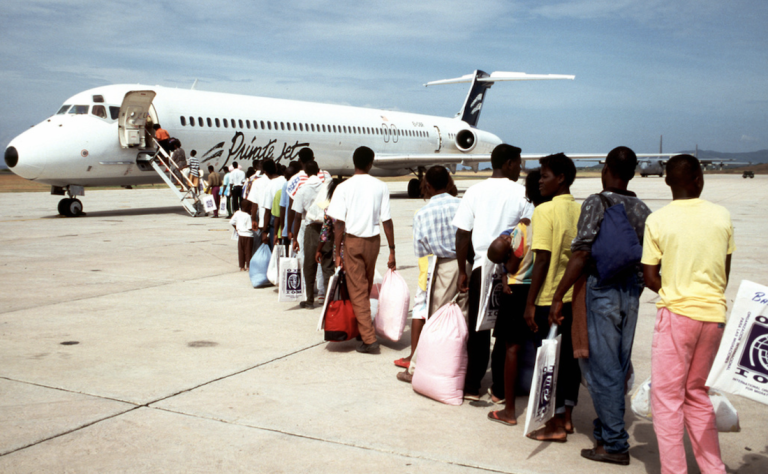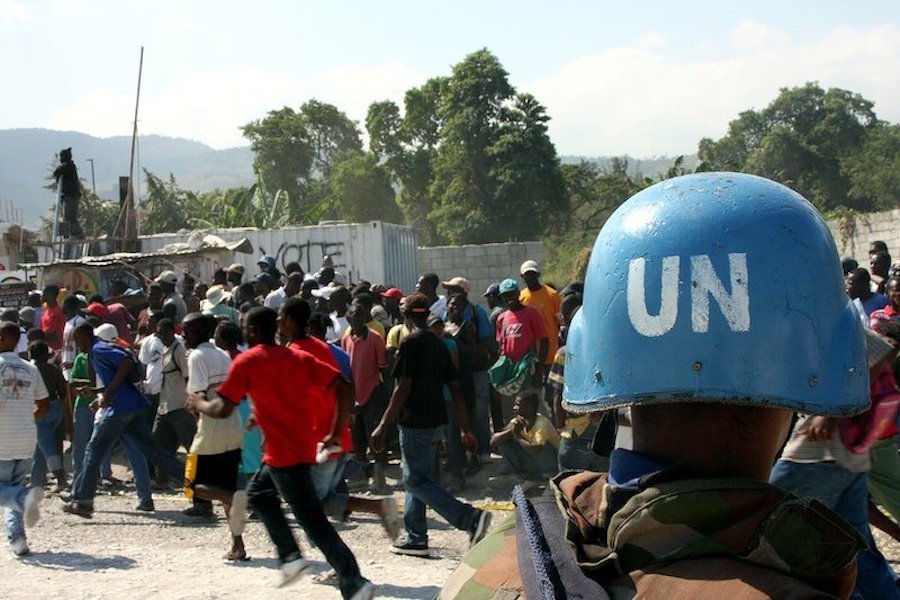
DHS Ends Protections for 532,000 Immigrants, Deportations Loom
Miami, FL — The Department of Homeland Security (DHS) announced on Friday that it will revoke legal protections for approximately 532,000 immigrants from Cuba, Haiti, Nicaragua, and Venezuela who entered the United States under the humanitarian parole program since October 2022. This decision leaves these individuals at risk of deportation starting April 24—30 days after the notice’s publication in the Federal Register.
These immigrants were granted two-year permits to live and work in the U.S., backed by financial sponsors who supported their applications under the humanitarian parole program. The program was designed as a temporary measure to provide refuge for individuals fleeing political instability or conflict in their home countries.
Homeland Security Secretary Kristi Noem stated that these protections will expire without renewal or extension. “Those without a lawful basis to remain must depart before their parole termination date,” DHS clarified in its statement.
This policy shift marks a continuation of immigration restrictions championed by Donald Trump during his campaign and presidency. Trump had pledged to deport millions of undocumented immigrants while also curbing legal immigration pathways. The termination of humanitarian parole aligns with earlier efforts by his administration to end what it described as the “broad abuse” of this legal mechanism.
The humanitarian parole program has historically been used by U.S. presidents to provide temporary residency for people escaping war or political unrest in their home countries. However, critics argue that its use has expanded beyond its intended scope in recent years.
For many affected individuals, this decision represents a devastating blow to their sense of security and stability in the United States. Advocacy groups have raised concerns about the human cost of this policy change.
“We came here because we had no choice—
going back would be like walking into a nightmare.”
“These are people who fled unimaginable hardship in search of safety and opportunity,” said Maria Gonzalez from the Immigration Rights Coalition. “Sending them back now is not just cruel—it’s dangerous.”

“I have witnessed by-passers being shot on the streets of Port-au-Prince and having our government send Haitians back to that hell is unconscionable,” stated Jim Luce of Luce Family Charities.
The directive is expected to have significant implications for immigrant communities across the U.S., particularly in states like Florida, Texas and New York with large populations from these four nations. Many immigrants are now scrambling to explore alternative legal avenues to remain in the country or prepare for potential deportation.
The decision also raises logistical questions about deportations to countries like Venezuela and Nicaragua that have historically refused to accept deportees from the U.S., complicating enforcement efforts.
Critics have accused the administration of prioritizing political goals over humanitarian considerations.
“This move undermines America’s long-standing tradition as a refuge for those fleeing persecution,” said Senator Linda Martinez (D-NY). “We should be expanding pathways to safety—not closing them.”
Supporters of the policy argue that it restores integrity to immigration systems that they claim were being exploited. “The humanitarian parole program was never meant to be a backdoor for permanent residency,” said Congressman Tom Reynolds (R-FL). “This is about enforcing our laws and ensuring fairness.”
The announcement has sparked widespread fear among affected families who now face an uncertain future. Many have already built lives in the U.S., contributing to local economies and communities during their stay.
“I don’t know what we’ll do,” said Carlos Ramirez, a Nicaraguan immigrant living in Miami with his wife and two children since early 2023. “We came here because we had no choice—going back would be like walking into a nightmare.”
Immigration advocates are urging Congress to intervene by passing legislation that would provide permanent protections for those at risk of deportation under this policy change. However, with a divided Congress and heated debates over immigration reform, such efforts face significant hurdles.
As the April 24 deadline looms closer, immigrant communities are bracing for what could be one of the largest deportation waves in recent history. For many families caught in this crisis, the question remains: where can they go when home is no longer an option?
Lives in Limbo: DHS Strips Protections for Haitian, Other Immigrants (March 22, 2025)